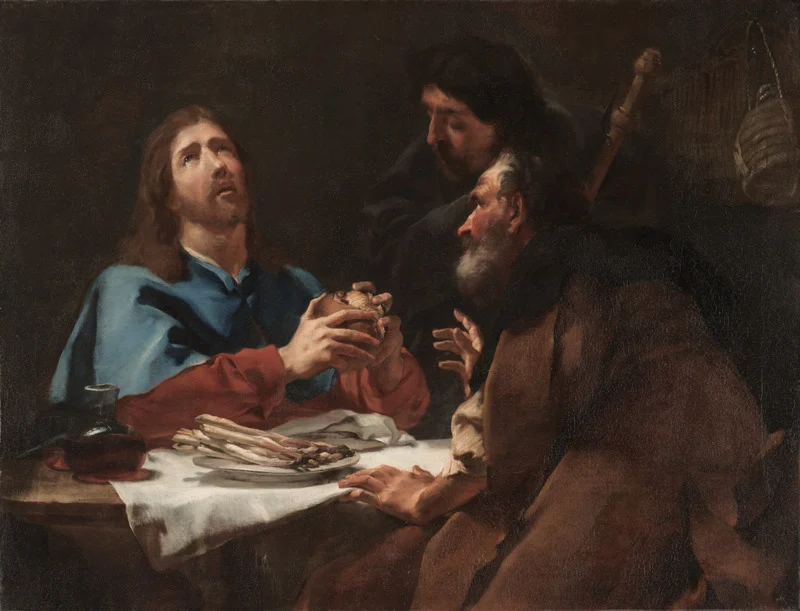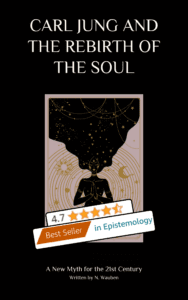Table of Contents
Introduction
Stephan Hoeller, in his book Gnosticism: New Light on the Ancient Tradition of Inner Knowing, indicated that, in recent years, many people in the West have tried to find an alternative for Christianity. According to Stephan Hoeller this is the case because Christianity has become too dogmatic and too distant. As an alternative, Buddhist teachings have gained in popularity, however, as Stephan Hoeller indicated, an alternative has been among us for centuries; Gnosticism: “Many people in recent decades […] have turned to Eastern religions in search of teachings and practices with less dogma and more inspiration. They have probably had no inkling that just such an alternative exists closer to home ant that it is called Gnosticism.” (p.3)
Gnosticism, is, however, still difficult to understand and often shrouded in a cloud of mystery. Christianity has done a good job in instilling within us the idea that Gnosticism is merely a satanic cult. However, as this article will discuss, Gnosticism is something entirely different.
In this article I will be discussing the main characteristics of Gnosticism, and whether Gnosticism can still play a role in the 21st century. In order not to make it too complicated for an introductory article, I will mainly focus on Stephan Hoeller’s book and Carl Jung’s ideas, because I believe that Carl Jung has shown us how Gnostic ideas might still be relevant today.
Joseph Campbell, Carl Jung, and Gnosticism
On this blog I have previously discussed several spiritual/religious problems which our (post)-Christian societies are facing. Joseph Campbell, in his book the Hero with a Thousand Faces, addressed one such problem, namely the problem that traditional myths, which were of great value to our ancestors, have been replaced by, for example, state-religions, consumerism and nationalism: “Such a monkey-holiness is not what the functioning world requires; rather, a transmutation of the whole social order is necessary, so that through every detail and act of secular life the vitalizing image of the universal god-man who is actually immanent and effective in all of us may be somehow made known to the consciousness.” (p.335)
As Joseph Campbell indicated here, we are unconscious to the ‘universal god-man’ present in everyone. This relates to another problem which our current societies are facing, as observed by Carl Jung; our lack of an understanding of the unconscious elements of the psyche: “It is, in fact, one of the most important tasks of psychic hygiene to pay continual attention to the symptomatology of unconscious contents and processes, for the good reason that the conscious mind is always in danger of becoming one-sided, of keeping to well-worn paths and getting stuck in blind alleys.” (Aion, p.20)
Interestingly, the ‘forgotten’ religion called Gnosticism offers a solution to both these problems, as well as many other problems. Sadly, Gnosticism has been repressed throughout most of the years that it has existed. Luckily, however, we are now free to explore Gnostic ideas and we can observe how Gnosticism can be of use in the 21st Century.
The Imitation of Christ
Between 1418 and 1427, Thomas a Kempis, a Dutch-German medieval author, wrote a book called the Imitation of Christ. Thomas a Kempis argued that anyone who truly wants to life a religious life, based on the teachings of Christ, should ‘imitate’ the life of Christ: “Anyone who wishes to understand and savour the words of Christ to the full must try to make his whole life conform to the pattern of Christ’s life.” (P.33) According to Thomas a Kempis this should be done by focusing on one’s inner life.
Years later, Carl Jung would refer to the Imitation of Christ in his Black Books. Jung questioned whether we should imitate the life of Christ in a literal sense, or whether we should imitate His life in another way; that we should imitate Christ in the sense that He sought and lived His own truth, which will be different for everyone. The purpose of the imitation of Christ would therefore be the same for everyone, the outcome, however, would differ according to everyone’s personality. In Psychotherapy and the cure of souls, Jung wrote in 1932: “Are we to understand the imitatio Christi in the sense that we should copy his life and, in a certain manner, ape his stigmata; or in the deeper sense that we are to live our own proper lives as truly as he lived his in its individual uniqueness?”
Interestingly, both ideas, the idea of Thomas a Kempis to imitate the life of Christ directly, but especially the idea of Carl Jung to imitate the life of Christ indirectly, by finding one’s own way, relate to the topic of this article, Gnosticism.
Gnosticism can namely be characterized by an emphasize on direct personal experience of the divine. In the case of a God this would mean the direct personal experience of God, instead of an indirect experience through, for example, a priest or a religious text. Moreover, related to this point, Gnosticism encourages the search for a specific kind of knowledge, called Gnosis. As Stephan Hoeller observed, this Gnosis differs from the usual, more common concept of knowledge:
“A Gnostic is often defined as a person who seeks salvation by knowledge. The knowledge, however, is not rational knowledge; even less is it an accumulation of information. The Greek language distinguishes between theoretical knowledge and knowledge gained through direct experience. The latter is gnosis, and a person possessing or aspiring to this knowledge is a Gnostic.” (p.2)
Characteristics of Gnosticism
1: Focus on the Direct Personal Experience of the divine
This is also the first important characteristic of Gnosticism, which sets it apart from the traditional monotheistic religions. In these religions, having faith often means to believe in the faith or the experiences of others, while in Gnosticism, faith comes from one’s own direct experiences. Here we can also clearly see the connection between the ideas of Carl Jung and Gnosticism. Jung encouraged every individual to investigate his or her unconscious, thereby also creating the possibility for every individual to experience ideas and realities outside of one’s own consciousness.
2: The Importance of Myths
These personal experiences can be understood and given their respective place within the psyche through the exploration of myths. The Gnostics interpreted the stories of the bible through a mythological lens, as a result, these stories acquire a different meaning as well: “The Gnostic Christians, whose legacy of sacred literature we find in the splendid Nag Hammadi library, read Genesis not as history with a moral but as myth with a meaning.” (p.26)

3: No Original Sin
The different lens which the Gnostics use to interpret the stories of the Bible have some interesting implications. An example is the story of Adam and Eve, or rather, the myth of Adam and Eve. According to the Christian doctrine of the Fall, humans destroyed the initial perfect world through their sins. Gnostics, on the other hand, believe that this is not the case, and that we, in fact, have nothing to atone for because the world was never perfect: “Gnostics have a perhaps unique and startling view of these matters: they hold that the world is flawed because it was created in a flawed manner.” (Stephan Hoeller, p.14)
The Gnostics believed, as Bertrand Russel indicated in his book The History of Western Philosophy, that the serpent, in the story of Adam and Eve, did not try to trick Eve in eating the apple, but was actually encouraging Eve to eat the apple because this would benefit humanity: “They [the Gnostics] held that the sensible world had been created by an inferior deity name Yaldabaoth, the rebellious son of Sophia (Heavenly wisdom). He, they said, is the Yahweh of the Old Testament, while the serpent, so far from being wicked, was engaged in warning Eve against his deceptions.” (p.305)
After eating the forbidden fruit, Adam and Eve became conscious of the reality around them, they were no longer unconscious to the fact that some of the gods (more on this in the following characteristic) around them were encouraging their ignorance: “The Gnostic version says that after eating the forbidden fruit Adam and Eve fell from paradisical grace, the Gnostic version says that “their eyes were opened” – a metaphor for gnosis” (p.29) After acquiring gnosis, Adam and Eve acquired the capability to spread gnosis among their offspring.
4: Dualism
As you can see from the previous characteristic, Gnostics believed in the existence of more than one God, which is also called dualism. According to the Gnostics, there is one supreme deity from whom everything is manifested. However, for the specific ‘day to day’ activities, other gods are required. Some of these gods, however, such as the Old Testament God, do not have the best interest of humanity in mind. This would explain why bad things happen in the world; not because humans are sinful, but because there are bad gods and the world is imperfect: “The transcendent God does not create; the divine essence emanates, comes forth, from the unmanifest state into the manifest, making possible further, more specific creation. The original God remains always the first cause, while other entities become the subordinate, or secondary, causes of creation.” (Hoeller, p.17)
As Bertrand Russell indicated, this also resulted in a different outlook towards the role of Jesus for the Gnostics. The Gnostics believed that Jesus was not sent to carry the sins of man, but to challenge the evil god Yaldabaoth: “For a long time, the supreme deity allowed Yaldabaoth free play; at last He sent His Son to inhabit temporarily the body of the man Jesus, and to liberate the world from the false teaching of Moses” (p.305)
5: Opposition to Ignorance
The last, but perhaps also the most important characteristic of Gnosticism which I will discuss is the strong opposition Gnostics have towards ignorance. I believe that this characteristic makes Gnosticism relevant in the 21st century as well, where ignorance seems to be spreading. Stephan Hoeller summarised this point effectively:
“People are generally ignorant of the divine spark residing within them. This ignorance serves the interests of the archons, who act as cosmic slave masters, keeping the light sparks in bondage. Anything that causes us to remain attached to earthly things, including the mental concepts we hold, keeps us in enslavement to these lesser cosmic rulers.” (p.18)
I believe that we can consider some aspects of our current societies to be similar to these ‘lesser cosmic rulers’. Consumerism, nationalism etc… all result in the spread of ignorance. The Gnostics, however, believe that there are messengers who can come and awaken the unconscious human. Historical messengers include Jesus, Buddha, and Zarathustra. Unlike Christianity, the Gnostics do not see it as their purpose to please God by living in a certain way, instead they use the stories of Genesis as an inspiration to awakening from their unconscious and acquire true gnosis: “Jesus came as a messenger and liberator, and those who take his message to heart and participate in his mysteries are, like the disciple Thomas, saved by gnosis.” (p.64)
“When you come to know yourselves, then you will become known, and you will know that you are the children of the Living Father. But when you will not know yourselves, then you will be in poverty and you yourselves will be the poverty.” (Gospel according to Thomas, Saying 3)
This brings us back to the beginning of this article where I have referred to Thomas a Kempis’ idea of the imitation of Christ. As Stephen Hoeller observed, Gnostics, unlike the Christians, believe that salvation is possible here on earth, we do not have to wait until we are dead. We can imitate Christ and resurrect while we are still on this planet:
“Resurrection has a deeply personal spiritual meaning for everyone who aspires to gnosis. For are we not all, in a certain sense, dead and entombed in material darkness […] Is it not our dearest hope and glorious destiny to see that stone rolled away and our spiritual nature awakened from its aeonial slumber? If this is so, then why not do as Christ did and resurrect into a new life of the spirit?” (p.65)
Or, as the Gospel of Philip states: “If men do not first experience the resurrection while they are alive, they will not receive anything when they die.” (Saying 21)
Conclusions
Gnosticism is still shrouded in mystery. And, after reading this article, one might still not know exactly what Gnosticism entails. Besides resulting from my incoherent arguments, this might be the case because we have been conditioned to reject Gnostic ideas for over 2000 years. I believe, however, that the veil is slowly being lifted, and we might come to understand what Gnosticism might be able to offer us.
I believe that Carl Jung has made a great contribution in this regard. Carl Jung appears to be greatly inspired by the Gnostics, and the importance which Carl Jung attached to the exploration of one’s own psyche relates to the Gnostic ambition of spiritual self-knowledge. This self-knowledge will make it possible for one to imitate Christ, and ‘resurrect into a new life of the spirit’.
As Joseph Campbell indicated, our societies in the 21st century are in need of a certain spiritual reform: “The hero-deed to be wrought is not today what it was in the century of Galileo. Where then there was darkness, now there is light; but also, where light was, there now is darkness. The modern hero deed must be that of questing to bring to light again the lost Atlantis of the co-ordinated soul.” (The Inner Reaches of Outer Space, p.334) As Stephan Hoeller indicated the Gnostic interpretation of worldly events and the Gnostic interpretation of the Biblical stories might be useful in this regard: “Many of the implications of the Gnostic version are in fact potentially useful for the culture of the twenty-first century. Perhaps the time has come to transvalue the Western creation myth, and if so, Gnosticism may serve as our helper and ally.” (p.35)

